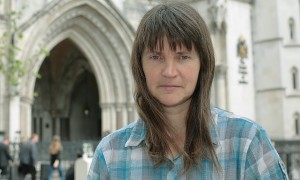
Helen Steel at the Royal Courts of Justice
Last week’s preliminary hearing of the Pitchford inquiry into undercover policing was concerned with issues of disclosure and secrecy.
Helen Steel is a lifelong activist and no stranger to the Royal Courts of Justice. She has just finished a four-year legal case against the police after she discovered her former partner John Barker was in fact undercover police officer John Dines. It was a fight characterised by Metropolitan police attempts to use any tactic to obstruct accountability and justice. At the end the Met conceded “these legal proceedings have been painful, distressing and intrusive and added to the damage and distress”.
The same Met lawyers are now wheeling out the same tactics for the Pitchford inquiry, claiming they can’t talk about officers as there is a long-standing policy of ‘Neither Confirm Nor Deny’. Helen Steel told last week’s hearing there is no such thing. Clear, comprehensive and authoritative, her speech ended with a round of applause from the court.
===
Throughout all the legal proceedings that I have been involved with where the police have asserted “Neither Confirm Nor Deny”, they have never offered any documentary evidence of their so-called policy, of how it is applied or how any exceptions to it are decided. That is actually despite an order from Master Leslie in August 2013 that they should provide that documentary evidence. Instead, they provided statements, but there are no documents that have ever been provided about this so-called “Neither Confirm Nor Deny” policy.
So I just wanted to start really with a brief history about what I know of neither confirm nor deny in relation to the Special Demonstration Squad and other political policing units. I will not comment on what the situation is with the wider Security Services or with the National Crime Agency position, except to say that I have seen newspaper reports of undercover officers giving evidence in criminal trials which are open to the public, so it does seem that it is only the political policing units which are seeking total secrecy about everything they do.
I think it is also worth bearing in mind in relation to the issues raised that the main concern of this Inquiry is political undercover policing, which is different to general undercover policing in that the intention is not to obtain evidence for prosecution; it is to obtain intelligence on political movements. The result of that is that, while general undercover operations are subject to a certain amount of outside legal scrutiny as a result of the requirements for due process and fair trials, political undercover policing has never been subjected to outside scrutiny until now.
I want to start with why we are here at all. We are not here because the police unearthed evidence of bad practice within these political policing units and were so concerned that they brought it to the attention of the Home Secretary.
We are here because of the bravery of Peter Francis coming forward to blow the whistle on the deeply alarming, abusive and undemocratic practice of the Special Demonstration Squad. We are here because of the detective work of women who were deceived into relationships with undercover police officers and who, despite the wall of secrecy around these secretive political policing units, managed to reveal the true identities of our former partners and expose these and other abusive practices to the wider world.
I think it is important to bear that context in mind when listening to the police assert that you can hear their evidence in secret and still get to the truth.
CONFIRMED BY POLICE IN THE MEDIA
So going back to the history of political undercover policing and neither confirm nor deny, these revelations started to unravel, really, on 19 December 2010, when The Times newspaper wrote an article about Mark Kennedy’s seven years’ undercover in the environmental movement.
The story had already broken on the internet, on alternative news websites, including Indymedia, and The Times reported on his involvement in the planned invasion of Ratcliffe-on-Soar Power Station, which had resulted in a number of protesters being convicted.
It was reported that his real identity was Mark Kennedy, but that he was known while undercover as Mark Stone. The article then continued:
“Last week two police forces confirmed Stone’s status to the Sunday Times. ‘The individual is a Met officer,’ said Nottinghamshire Police. ‘He is an undercover officer,’ said the Metropolitan Police, ‘so we can’t say more’.”
So, on the face of it, it took nothing more than Mark Kennedy’s identity being revealed on the internet for the Metropolitan Police to confirm that he was an undercover police officer. The police actually confirmed his identity long before he was officially named in the appeal judgment in July 2011 or in the HMRC report in 2012.
The police also publicly confirmed Jim Boyling as a police officer via the media on 21 January 2011. The week after the DIL story of her relationship with Jim Boyling first appeared in the national press, the Guardian newspaper reported that Jim Boyling had been suspended from duty pending an investigation into his professional conduct.
It said that,
“In a statement the Metropolitan Police said a serving specialist operations detective constable has been restricted from duty as part of an investigation following allegations reported in a national newspaper”
A similar report was carried on the BBC.
CONFIRMED BY POLICE IN PERSON
There was not just the confirmation in the media. DIL or, as she’s known in this Inquiry, Rosa got in contact with me in late 2010 in relation to her former partner, Jim Boyling, who I had known as “Jim Sutton”, when he was infiltrating Reclaim the Streets. I was with her when she was interviewed in March 2011 by the Department of Professional Standards, who were investigating the conduct of Jim Boyling.
Her account was absolutely harrowing and, at the end of it, the police officers apologised on behalf of the Metropolitan Police. At no point in that interview did they mention “neither confirm nor deny”. On the contrary, they confirmed that Jim was a serving police officer.
CONFIRMED BY POLICE IN WRITING
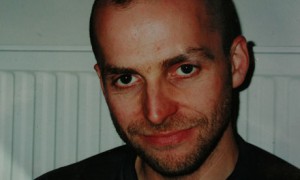
Jim Boyling whilst undercover in the 1990s
They also named Jim Boyling and referred to him as a serving officer in correspondence sent relating to that interview and potential disciplinary issues arising from it from February 2011 until June 2012.
If you want to see any of that correspondence, it can be made available to show that he was named and they were not applying neither confirm nor deny.
They also provided a copy of their terms of reference to their investigation, which clearly states that they were investigating DC Jim Boyling.
Then moving on to our court case, with DIL and six other women I went on to bring a case against the Metropolitan Police Service, arising from having been deceived into relationships with these undercover officers. That case involved eight women and relationships with five different undercover police officers, spanning a period of around about 25 years, and the case incorporates both the AKJ and the DIL judgments that have been referred to at this hearing.
In that case, the first time the police asserted a policy of neither confirm nor deny was in a letter dated 25 June 2012, some six months after the initial letter before claim, and only after considerable correspondence between the parties, which had included admitting that Mark Kennedy was an undercover officer and making a series of conflicting statements about sexual relationships while undercover.
If there really was a longstanding and active Metropolitan Police Service policy of neither confirm nor deny, you would assume that the immediate response on receipt of the letter before claim in December 2011 would have been to assert such a policy straight away.
In fact, in relation to the Mark Kennedy claims, the Metropolitan Police letters had absolutely no hint of a policy of “Neither Confirm Nor Deny”. In a letter dated 10 February 2012, they stated:
“If it assists, I can confirm Mark Kennedy was a Metropolitan Police officer and did not serve with any other force. He left the Metropolitan Police Service in March 2010.”
It then goes on to state that the Commissioner is not vicariously liable in respect of Mr Kennedy’s sexual conduct, as described in the letters of claim.
In a letter of 14 March 2012, the force solicitor stated:
“I confirm that during most of the entire period from July 2003 to February 2010, Mark Kennedy was authorised under Regulation of Investigatory Powers Act to engage in conduct of the sort described in section 26(8) of Regulation of Investigatory Powers Act.
“He was lawfully deployed in relation to certain groups to provide timely and good-quality pre-emptive intelligence in relation to pre-planned activities of those groups. The authorisation extended to participation in minor criminal activity.”
There was then further correspondence in which the Metropolitan Police Service was quite open about Mark Kennedy’s identity as an undercover police officer.
It was not actually until November 2012 that the Metropolitan Police Service first raised “Neither Confirm Nor Deny” in relation to the AKJ case in their application to strike out the claim on the basis that “Neither Confirm Nor Deny” meant that they could not defend themselves. That is the Carnduff argument. By that time they had obviously confirmed his identity so it was all a bit late.
CONFIRMED BY POLICE INTERNAL STANDARDS WATCHDOG
Then, moving on to how the so-called “Neither Confirm Nor Deny” policy relates to the Department of Professional Standards, as I mentioned, the first time that the police asserted a policy of neither confirm nor deny in relation to the DIL claims was in June 2012. That came two weeks after the first mention of “Neither Confirm Nor Deny” at all from any police source which was in a letter from the Directorate of Professional Standards (Police).
Until that point, the Directorate of Professional Standards (Police) had openly discussed the investigation against Jim Boyling, but they were also asking for statements from myself and the other women in relation to the issues raised in the particulars of our claim. That included issues relating to the McLibel Support Campaign.
A letter that was from them, dated 16 April 2012, confirmed progress in relation to the investigation into DC Boyling and then went on to seek clarification relating to whether or not I wanted to make a formal complaint to the Directorate of Professional Standards (Police) of matters that were outlined in our letters before claim regarding the involvement of undercover officers in the McLibel case.
THREE OFFICERS ARE ENOUGH – TIME TO INVENT A LONG-STANDING POLICY
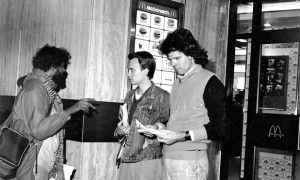
Bob Lambert distributes anti McDonald’s leaflets, 1986
During previous discussions we had requested information relating to what action the Directorate of Professional Standards (Police) was able to take if undercover officers were no longer employed by the Metropolitan Police Service and, as a result, we had requested confirmation as to whether John Barker and Mark Cassidy were still serving police officers.
The letter of 16 April explains that the Directorate of Professional Standards (Police) was seeking legal advice as to whether or not they could disclose that information to us.
On 11 June 2012, the Directorate of Professional Standards (Police) sent an email regarding the progression of my complaint and asking to interview me in relation to the allegations about breaches of legal privilege and Bob Lambert’s involvement in the creation of the leaflet that resulted in the McLibel action.
In that same letter, even though they have named Bob Lambert and asked me to give a statement in relation to him, they state:
“In answer to your questions surrounding John Barker and Mark Cassidy, the current position of the Metropolitan Police Service is to maintain its neither confirm nor deny stance in accordance with established policy.”
That letter on 11 June 2012 was the first time that the police mentioned “Neither Confirm Nor Deny” to us. At that point, though, since Bob Lambert was named in that same letter, it appeared that it was only in relation to John Barker and Mark Cassidy that they were asserting neither confirm nor deny.
It was only two weeks later on 25 June, when they extended that to all the officers in the DIL case, that “Neither Confirm Nor Deny” became the standard response to every request for information or compliance with the court proceedings, even though there had already been official acknowledgement that both Lambert and Boyling had been undercover officers. It was absolutely clear at that point that they were going to use “Neither Confirm Nor Deny” to create a wall of silence about these relationships.
CONFIRMED BY THE HEAD OF THE UNIT
Moving on to other evidence relevant to neither confirm nor deny about Bob Lambert. When I originally met with DIL, she informed me that while she was married to Jim Boyling, he had revealed that Bob Lambert and my former partner, John, had both been police spies in the groups that I had been involved with.
It took some time to identify that Bob Lambert had been Bob Robinson, who infiltrated London Greenpeace in the mid-1980s. But after that we felt it was important to expose his past role, which we did when he spoke at a public meeting about racism in the headquarters of the Trade Union Congress on 15 October 2011. If necessary, footage is available of that incident which confirms that no violence either took place or was threatened and that Bob Lambert hurried away, refusing to make any comment.
But two weeks later, on 24 October 2011, he issued a public statement to Spinwatch, which was an organisation which he had worked with in the past, and to the Guardian, in which he admitted,
“As part of my cover story so as to gain the necessary credibility to become involved in serious crime, I first built a reputation as a committed member of London Greenpeace, a peaceful campaigning group”
That statement contrasts sharply with the attempt to smear the group that is made in his current statement for the purposes of applying for a restriction order in connection with this Inquiry, but it also confirms his role as an undercover officer.
He has subsequently gone on to comment extensively in the media about his time in the Special Demonstration Squad, the relationships that he had, the fact that a child was born as a result of one of those relationships and the fact that he was involved in writing the London Greenpeace anti-McDonalds leaflet that became the subject of the McLibel case.
Now you would think that, if “Neither Confirm Nor Deny” had always been a Metropolitan Police Service policy, that Bob Lambert, who had supervised Special Demonstration Squad officers at one point, would have known about that and adhered to it.
CONFIRMED BY THE COUNTRY’S TOP COP
It is not just Bob Lambert. We then go on to the Commissioner of the Metropolitan Police, Bernard Hogan-Howe. You would think that this is someone who would stick to “Neither Confirm Nor Deny” if it truly was a policy adopted by the Metropolitan Police. But, no, at a public meeting of the Metropolitan Police Authority on 27 October 2011, he confirmed that ‘Jim Sutton’ was under investigation as a serving officer.
Is it really credible that, if there was a “Neither Confirm Nor Deny” policy in place, the Commissioner himself would not know about it and not adhere to it?
The transcript of those proceedings is available, it can be checked, and you will see that he answers questions about Jim Boyling.
So is it really credible that there was an “Neither Confirm Nor Deny” policy in place at that point or is it more likely, as I would submit, that “Neither Confirm Nor Deny” was suddenly adopted in June 2012, when the Metropolitan Police Service wanted a wall to hide behind after they realised that they could no longer write these relationships off as a result of rogue officers and that, in fact, there was clear evidence of multiple abusive relationships that could only have arisen through systemic failings and institutional sexism?
CONFIRMED TO THE BBC
The final and key piece of the jigsaw concerning the truth about neither confirm nor deny, which I know has already been referred to so I’m not going to say anything at length, is the True Spies television series.
In 2002, the BBC broadcasted three programmes as part of a series called “True Spies” which were entirely focused on the work of the Special Demonstration Squad. As I am sure you have heard, the programme was made with the support and assistance of the Metropolitan Police Service. While no individual officer’s identity is disclosed, undercover officers speak extensively to the camera about their work. They talk about the groups they infiltrated and the methods used. There are significant details of the undercover operations actually carried out.
I would urge you to watch True Spies so that you can see just how much of their tactics they discussed and yet how the Metropolitan Police now claim they can’t talk about those same tactics.
NEITHER CONSISTENT NOR A POLICY
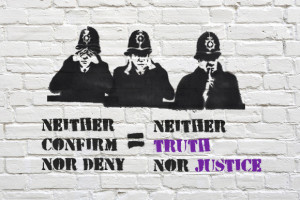 I submit that they were perfectly happy to reveal their methods and the groups that they were spying on when it suited them for PR purposes and that the reason they want to bring in “Neither Confirm Nor Deny” is that actually just to cover up serious human rights abuses.
I submit that they were perfectly happy to reveal their methods and the groups that they were spying on when it suited them for PR purposes and that the reason they want to bring in “Neither Confirm Nor Deny” is that actually just to cover up serious human rights abuses.
It is being used as a shield for the police from any form of accountability and to avoid any proper scrutiny of their actions to cover up illegal and immoral activities of political undercover police officers and prevent them coming to light.
There was a lot of talk yesterday about the police rights to privacy, but there was nothing at all from the police about the rights of core participants who were spied on. It took me 24 years to get acknowledgment of wrongdoing from the Metropolitan Police and from John Barker, my former partner. Other core participants should not have to wait that long, nor should they have to risk never finding out the truth and being left with permanent doubt about who people really were in their lives.
We know that the McLibel Support Campaign was infiltrated by John Dines and indeed that Bob Lambert was involved in writing the leaflet that led to the case and we know that information was shared between the Metropolitan Police and private corporations, private investigators and McDonalds that enabled the writs to be served, but what we don’t know is any of the detail
behind that. We need to know how and why that was allowed to happen in order to prevent those kind of abuses from happening again.
It is insulting in the extreme that, despite the apology, the police are still seeking to neither confirm nor deny John Dines. It is also farcical in light of my meeting with him last week and his apology to me. But it was not just insulting to me. It is insulting for everybody who has had their privacy invaded to be told that they can’t know the truth about the wrongdoing that was done against them because the privacy of those who carried out that abuse has to be protected.
NEITHER BASIS NOR JUSTIFICATION
I just also wanted to say that they seem to also be seeking unique rights in that they seem to think that they should have the right to no social ostracisation, which is something that nobody else who is accused of wrongdoing gets any form of protection from. Nobody else who is accused of something has their name covered up on the grounds that they might be socially ostracised.
So finally, I wanted to submit that, even if there had been a genuine “Neither Confirm Nor Deny” policy, there is absolutely no justification for a blanket protection of all officers, given the level of human rights abuses that we have been subjected to as core participants. I cannot see why officers who have grossly abused the fundamental human rights of others should have a permanent shield preventing scrutiny of their actions and I would say that it is not in the public interest for officers to think that they will be protected no matter what they do.
RELEASE THE NAMES
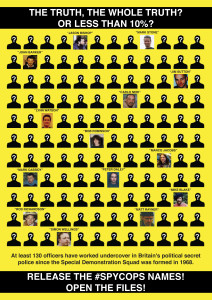 The McLibel Support Campaign supports the core participants’ call for all the cover names to be released so that the truth can be heard. We have not called for all the real names of officers to be released, although I think that there may be individual circumstances where that is appropriate, especially where those officers went on to become supervisors or line managers or are now in positions of responsibility, but I’m assuming that that would be done on a more individualised basis. However, I do believe that all of the cover names should be disclosed so that the truth can be achieved.
The McLibel Support Campaign supports the core participants’ call for all the cover names to be released so that the truth can be heard. We have not called for all the real names of officers to be released, although I think that there may be individual circumstances where that is appropriate, especially where those officers went on to become supervisors or line managers or are now in positions of responsibility, but I’m assuming that that would be done on a more individualised basis. However, I do believe that all of the cover names should be disclosed so that the truth can be achieved.
I also believe that to ensure the Inquiry is as comprehensive as possible, the police need to release a full list of all the organisations that were targeted. There is no reason for secrecy on this. Various groups were named in True Spies, so why is it that they can’t be named now?
The reason for wanting maximum transparency and disclosure is a political one. Without the names of undercover officers who targeted each group, it is impossible to start to assess the whole impact of their surveillance or the extent of the abuses committed. Without full disclosure, we won’t get to the full truth and we can’t ensure that preventative measures are put in place to stop these abuses happening again.
These were very, very serious human rights abuses committed by this unit, including article 3 abuses [“no one shall be subjected to torture or to inhuman or degrading treatment or punishment”]. We want to stop them happening again. That is our purpose in taking part in this Inquiry and that is the real public interest that requires that there must be openness and transparency.


 Storage facilities with most documents missing or misfiled, systems repeatedly described as ‘chaotic’ by the police themselves – internal documents reveal that the Met is having big problems sorting out its records management before it can even tell the Pitchford Inquiry what’s gone on.
Storage facilities with most documents missing or misfiled, systems repeatedly described as ‘chaotic’ by the police themselves – internal documents reveal that the Met is having big problems sorting out its records management before it can even tell the Pitchford Inquiry what’s gone on. 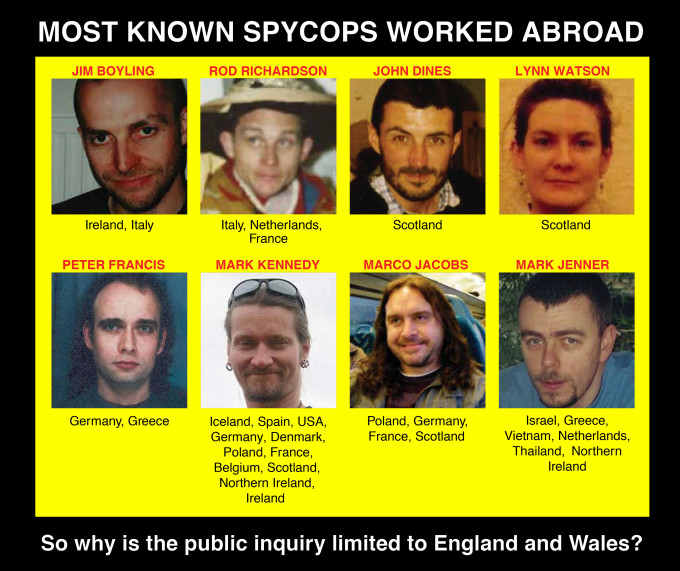
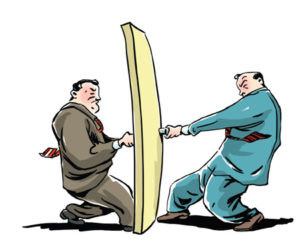 In the wake of the Home Office decision not to extend the Pitchford inquiry to Scotland, a group of
In the wake of the Home Office decision not to extend the Pitchford inquiry to Scotland, a group of  In the early 1990s it seemed like every dance track needed to have a sample. The Prodigy – the now stadium band famous for ‘Firestarter’ and ‘Invaders Must Die’ – started out with
In the early 1990s it seemed like every dance track needed to have a sample. The Prodigy – the now stadium band famous for ‘Firestarter’ and ‘Invaders Must Die’ – started out with 
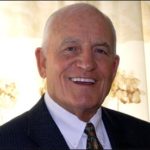

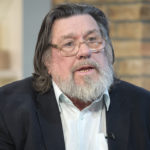
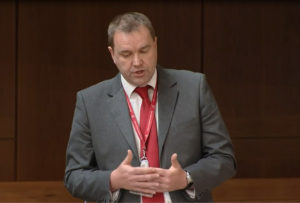
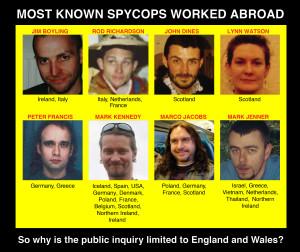 The German government have formally asked to be included in the forthcoming
The German government have formally asked to be included in the forthcoming 


 I submit that they were perfectly happy to reveal their methods and the groups that they were spying on when it suited them for PR purposes and that the reason they want to bring in “Neither Confirm Nor Deny” is that actually just to cover up serious human rights abuses.
I submit that they were perfectly happy to reveal their methods and the groups that they were spying on when it suited them for PR purposes and that the reason they want to bring in “Neither Confirm Nor Deny” is that actually just to cover up serious human rights abuses.